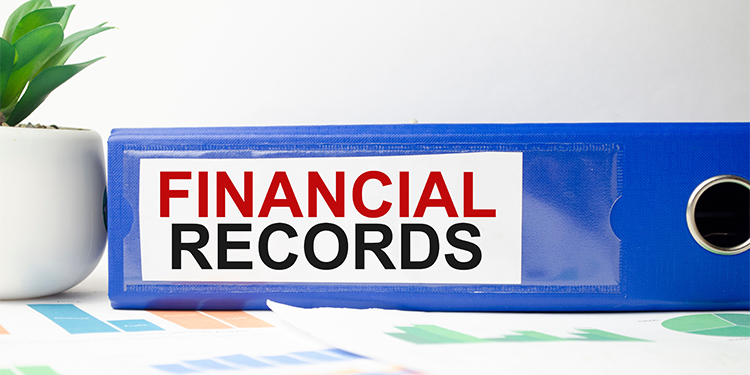How to Sell a Business

An overview of the business selling process, from exit planning and valuation, through brokers and sales negotiation.

Planning an exit strategy is an important aspect of being a business owner and allows you to prepare for the sale of your business and maximize its value.

Selecting an exit approach that achieves your financial objectives, sale-approach objectives, and after-sale objectives requires a worthwhile investment of time and thought.

Pre-sale improvements have two main objectives: to enhance strengths and overcome weaknesses that most contribute to the value of your business.

Business owners need to compile financial records and documentation during the sales process as prospective buyers request information about the business.

When selling a business, business owners should be prepared to answer questions from the buyer. Anticipating and responding to buyer concerns can help ensure a smooth transaction.

When it comes to selling your business, it’s important to look at your business from the buyers perspective and understand what buyers want when they evaluate businesses to buy.

Tips to build a strong management team and boost your business's sale price. Learn how to value of management is a strong asset, not a liability.

Strategies for maintaining business performance during a sale. Practical tips for managing employees, customers, and operations while navigating the sale process.

When you’re ready to sell your business, you have options. As you plan your exit strategy, consider selling your business to employees, passing down to family, or listing on the open market.

On average, it takes between 6-12 months to sell a business. The time frame depends on many factors, such as industry, market conditions, and the size of the business.

Find out why businesses don’t sell. Learn about key obstacles, practical steps to attract buyers, and how to boost value and ensure a smooth sales process.

When it comes to selling your business, selling to employees—management buyout—can be mutually beneficial due to their familiarity with the business.

Learn how to address real estate concerns when selling your business. Explore expert tips to value owned and leased property effectively and make confident decisions.

Discover how to effectively sell your business with special purpose real estate. Learn about valuation, marketing strategies, and navigating challenges.

Discover how private equity roll up strategies work in the lower middle market. Learn which industries are targets and how to market your business to buyers.

One of the most important decisions you can make when choosing to sell your business is your selection of professionals who will guide and assist you through the selling process.

For most entrepreneurs who are selling a business, the choice boils down to going it alone, or hiring a business brokerage, or M&A firm. How to select the advisor to help you sell your business.

Business brokers and M&A advisors are experts at selling businesses. This guide delves into their cost and fee structure to help you navigate your business sale successfully.

M&A advisors and business brokers use the Lehman scale to calculate commission or success fees. This article covers who uses this scale, as well as examples and the ways you can negotiate it.

Marketing a business for sale involves utilizing local brokers, classified ads, online listing sites, and professional networking to connect prospective buyers with businesses that match their criteria.

Draft a compelling business-for-sale listings to attract responses from those who are the most serious and the most qualified to buy the business for an effective marketing strategy.

After listing your business for sale, managing your business listing and responding to inquiries allows sellers to screen, prioritize, and communicate with buyers effectively.

Maintaining confidentiality is key in business sales. Confidentiality agreements, private communication channels, and a business broker help ensure confidentiality.

A confidential information memorandum (CIM) is a marketing tool sellers use to attract the greatest number of prospective buyers and the highest sale price for a business.

Determining the asking price for your business is a multi-step process including getting financial statements in order, estimating the value of tangible assets, using earnings multiples, and researching comparable businesses.

This article will guide you through the process, detailing when and why you might sell your business without an asking price and discussing the pros and cons of each approach.

After preparing and marketing your business for sale, managing offers is a critical stage of the business sales process. Reviewing, responding, and accepting a buyer offer requires diligence and delicate negotiation to ensure a smooth transaction.

When selling your business, identifying qualified buyers while protecting the confidentiality of your business is a delicate process.

When selling your business, payment structures are an important part of negotiating the deal. With seller financing, the seller acts as lender, providing a unique set of benefits and challenges.

Selling a business is a multi-step process that involves assessing its value, managing offers, completing due diligence and in the final stages before closing, structuring the sale to ensure a successful transition.

An asset sale involves purchasing specific business assets rather than buying the entire company. Learn when to use asset sales, the benefits, and how they compare to stock sales.

Due diligence, purchase and sale agreement, closing day, and assuming ownership. What to review and verify in order to finalize the deal.

When selling a business, due diligence plays a pivotal role, representing the buyer's in-depth investigation into various aspects of the business.

The purchase and sale agreement is a very detailed and complex document that stipulates the terms and conditions that will guide the sale and transfer of the business.

After closing the sale of your business, it’s time to pass the baton and transfer ownership. From legal dissolution, notifying employees and announcing the sale, follow these steps for a smooth transition.

When selling a business, telling the employees about the sale needs a thoughtful and nuanced approach to ensure a smooth sale and transition.

Learn effective tax strategies for selling your business. Discover how to prepare your business for sale to minimize tax liabilities and maximize your after-tax proceeds from the sale.


